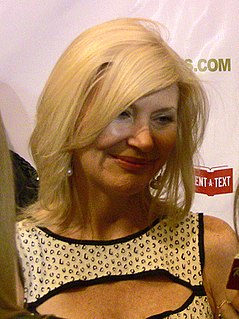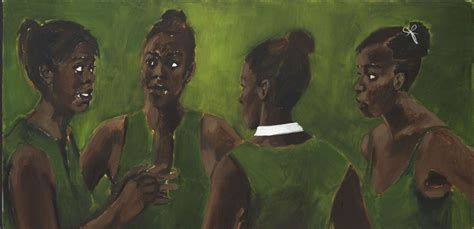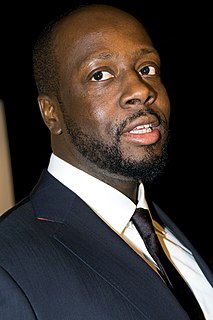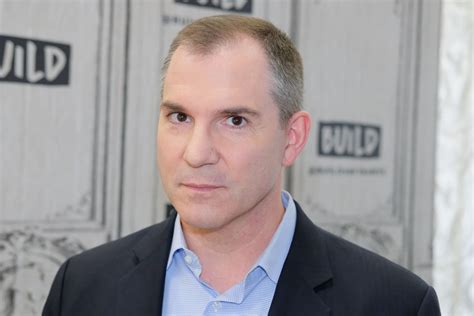A Quote by Trevor Noah
Language and accents govern so much of how people think about other people.
Related Quotes
When people talk to me about the digital divide, I think of it not so much about who has access to what technology as about who knows how to create and express themselves in the new language of the screen. If students aren't taught the language of sound and images, shouldn't they be considered as illiterate as if they left college without being able to read and write?
When people ask about the aspect of race in the work, they are looking for very simple or easy answers. Part of it is when you think other people are so different than yourself, you imagine that their thoughts aren't the same. When I think about thought, I think about how much there is that is common.
I'm fascinated by what makes up a self, how one becomes a self, how much is it an answer to others and how much is it an essence of self. We learn how to be people from other people. Then you think - what's personal freedom? Is self-creation possible? This book is dedicated to a friend of mine who really did re-create herself. I didn't do that - I stayed in the circus and am a circus performer like my parents were. I did what I was raised to do - I'm glad I did but I'm fascinated by the people who managed to do something else. I was always very curious about other people.
The art is about opening, it is not about prejudice, it is not about contempt prior to investigation. It's about endlessly trying to keep from having contempt by admitting that you don't know. Even if you know a lot compared to some other people, usually, I think, the honest experience would be: "God, how little I know! And how much I need to have compassion for myself and for other people."
I am always struck by how difficult it is for people to see how much cruelty they are bringing not only upon animals but upon themselves and their loved ones and other people, how much we are screwing up the planet, how much we are hurting our own health, how hard it is to change all that, how eager people are to make a buck at everybody else's expense - all those things are discouraging.
Interesting thing that is happening in American society is that people are starting to talk about money. I don't know how you feel about this, but for a long time, nobody was talking about money. It was a secret. And it's kind of very interesting because we do lots of stuff to portray to people about how much money we have, the clothes we wear and the cars we have and the house - they all kind of depict to other people, signal how much money we make, but we don't talk about it specifically.
We have Americans who are voting for someone in whom they have confidence, about whom they have hope, because at after the election 2016 whoever wins is going to have to govern. And when you look at the tenor of this campaign, and when you look at the way people feel about these candidates and how partisan our country is for starters, how does the winner govern? I mean that's the real, real problem.


































